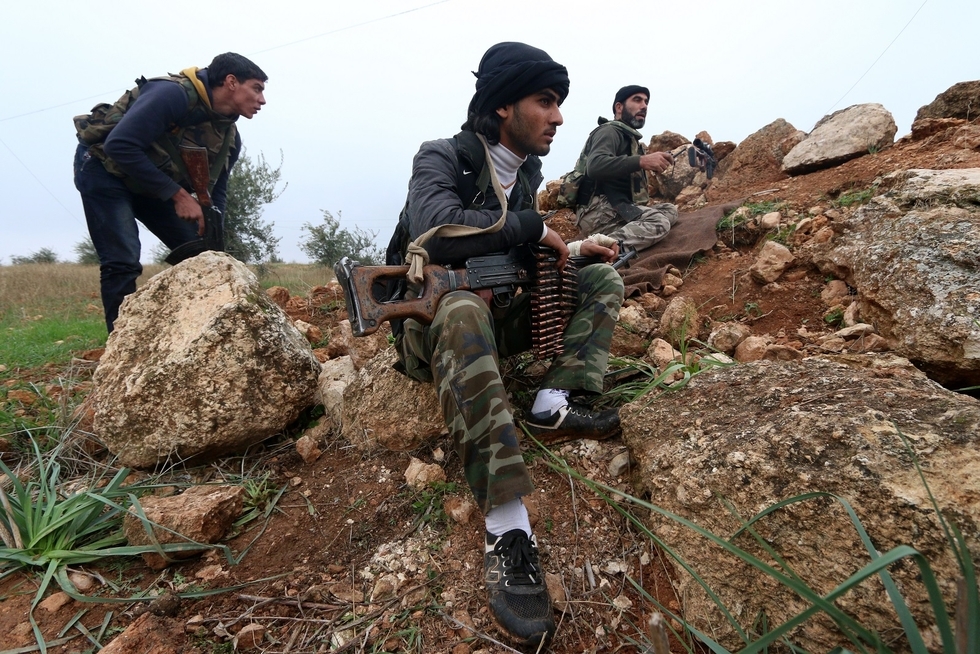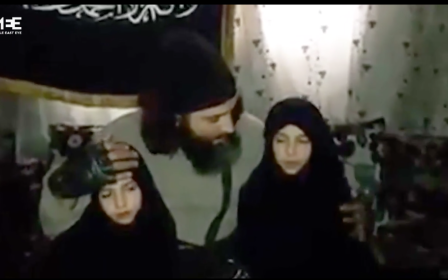Aleppo defeat exposes divisions within ranks of ex-Nusra Front

The rebranding of the al-Nusra Front into Jabhat Fateh al-Sham (JFS) in July, its apparent break with al-Qaeda central and massive losses within the larger Syrian opposition, have taken a major toll on the group.
Opposing forces appear to be struggling within the group’s rank and file, each pushing for disparate agendas. The JFS hawks, including foreign militants, are pitted against the more pragmatic Syrian branch.
When al-Nusra Front leader Abu Muhammad al-Julani announced a few months ago a separation of the Syrian franchise from the global militant scene, many analysts denounced it as a hoax.
Yet fake or not, the rebranding had a real impact on the group, more specifically on the organisation’s mainly foreign militants dominating the group’s apparatus.
The greatest opposition to the break with al-Qaeda central came unsurprisingly from the organisation’s Jordanian branch, which had led the group. These are people who have been global militants and, in some cases, al-Qaeda followers for years.
The rebranding had a real impact on the group, more specifically on the organisation’s mainly foreign militants dominating the group’s apparatus.
Widespread defections
After the group broke away, sources speaking on condition of anonymity reported the defection of Iyad al-Tubasi, known as Abu Julaybib, head of security in the organisation and the former emir of Deraa.
Scores of dissatisfied militants appear to have followed suit, such as Dr Sami al-Oraydi, heading the Sharia board of the organisation, as well as other Jordanians such as Bilal Khuraysat, known as Abu Khadjia, who is also responsible for the organisation’s security, according to a recent report by the Syrian Observer.
Veteran Nusra commander Raed Hijazi, known as Abu Hammam al-Shami, is also believed to have suspended his participation in the organisation, in addition to a few- first and second-rank leaders, according to Sheikh Marwan Shehadeh, a Jordanian expert in Salafi militant groups.
According to the Syrian Observer, defectors formed a new organisation called Taliban Sham, which garnered the support of prominent Jordanian Salafi militant ideologue Abu Mohammad al-Maqdisi, the former mentor of infamous al-Qaeda leader Abu Musab al-Zarqawi.
But Shehadeh says the hardliners only froze their participation in JFS. “I also spoke to Sheikh Maqdisi and he does not support any divisions in the ranks of the mujahidin,” he said.
These divisions only worsened with Julani’s call for the merger of Salafi and Islamic rebel groups, namely Ahrar Sham, Nour al-Din al-Zenki, Jaish al-Islam and others.
JFS spokesperson Hussam al-Shafi’i said of the merger project: “this project is not a [pledge of allegiance] to JFS but an inclusive project led by all factions…within one wing, we will have all the resources and experience [of the various factions] and the most capable and experienced will prevail.”
Hardliners within Nusra appear to have opposed uniting with other rebels too mainstream for their taste and believed to be too far ideologically from the militant ideology of JFS.
“Sheikh Aymen Zawahiri advised Joulani to make a choice: either restore the group's affiliation with al-Qaeda or merge with mainstream Islamic group,” Shehadeh said. The latter proposal was nonetheless rejected by Syrian rebels.
Aleppo defeat and a possible convergence of radicals
The discord within JFS comes on the heels of massive losses by the opposition, particularly in Aleppo. The militant organisation, which has gained credibility from continuous military successes, has been plagued in recent weeks by dissent and accusations of weakening opposition lines by internecine clashes with rebel groups.
On top of that, the Army of Conquest [Jaysh al-Fateh] failed to break the siege imposed on the eastern districts of Aleppo.
Other factors that might be pressuring the organisation is the emergence of another radical wing within the group: following clashes between Jund Aqsa and Ahrar al-Sham, JFS absorbed the radical group Jund al-Aqsa, which may also be an exacerbating factor on the group’s cohesion.
The discord within JFS comes on the heels of massive losses by the opposition, particularly in Aleppo.
In October, clashes erupted between Jund al-Aqsa and Ahrar al-Sham when the former attempted to abduct Ahrar al-Sham's security officer in Saraqeb in Idlib province. The incident, which resulted in the stabbing of one fighter, was followed by more clashes between the two groups in Hama.
Jund al-Aqsa is known to have maintained good relations with the Islamic State (IS) and is thought to have assassinated several opposition figures on behalf of the group.
Last January, the Army of Conquest executed members of a Jund al-Aqsa cell in Idlib city for carrying out assassinations on behalf of IS.
In conjunction, members of the latter terror organisation appear to be trickling into northern Syria.
IS converge on Idlib
Syrian opposition websites have reported that at least five leaders within IS had left for Idlib, although Sheikh Hassan Dgheim, a Syrian cleric who follows Islamic organisations, says there is no information on their present whereabouts.
One IS defector believed to have fled to Idlib is Abu Thar Tunisi, a former military commander in the Nusra Front, who appears to be accompanied by four “emirs,” including one Bilal Shawish, also known as a former member of the Nusra Front who defected to IS in 2014.
The next few weeks will determine whether the convergence of these factors will reshape the militant scene in northern Syria.
While it is doubtful that Julani will back the “Syrianisation” of the movement that started with his July announcement of the group’s break with al-Qaeda, will he be able to convince other Islamic groups that his organisation is truthful in its mainstreaming ambitions?
Will JFS hardliners decide to go their separate ways? And most importantly, will they join forces with IS defectors as it is rumoured?
- Mona Alami is a researcher and journalist covering Levant politics. She is a non-resident fellow at the Atlantic Council. Her primary focus is radical organisations. She holds a BA and an MBA in management.
The views expressed in this article belong to the author and do not necessarily reflect the editorial policy of Middle East Eye.
Photo: Jabet Fateh al-Sham's break with al-Qaeda has led to major splits (AFP)
New MEE newsletter: Jerusalem Dispatch
Sign up to get the latest insights and analysis on Israel-Palestine, alongside Turkey Unpacked and other MEE newsletters
Middle East Eye delivers independent and unrivalled coverage and analysis of the Middle East, North Africa and beyond. To learn more about republishing this content and the associated fees, please fill out this form. More about MEE can be found here.





